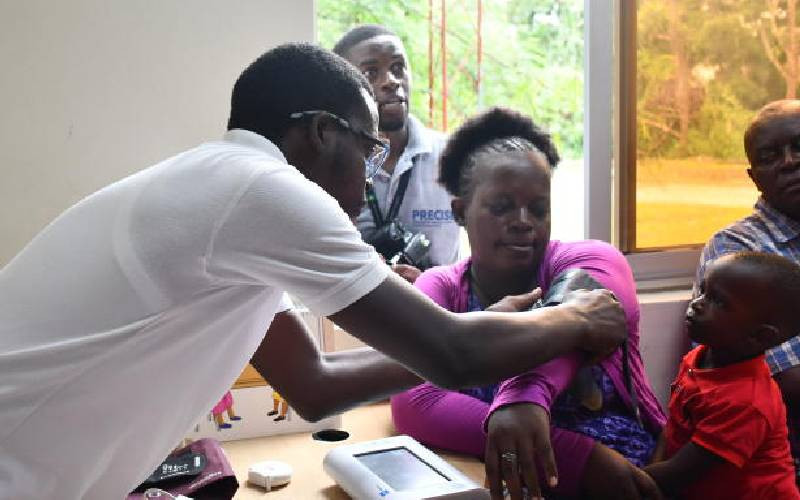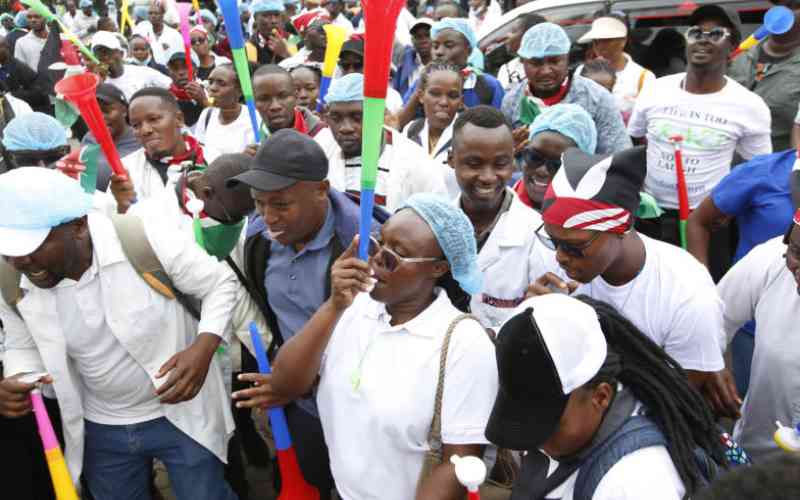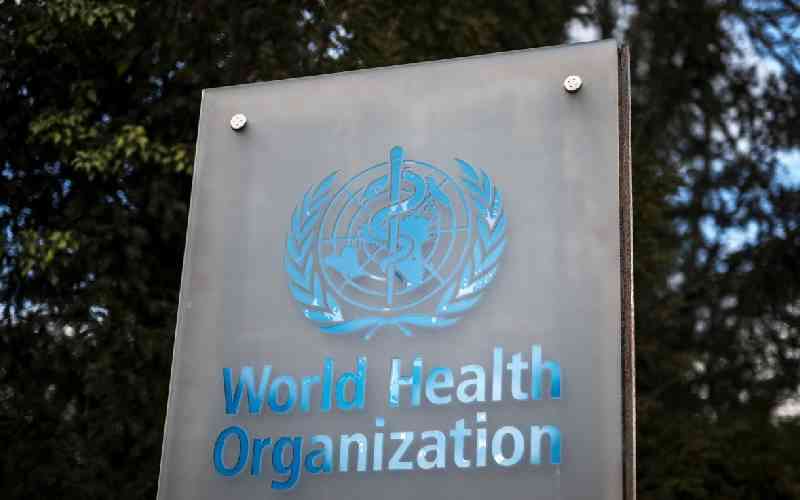
Over the past two years, Emma Nzaro has witnessed many women in pain after losing their unborn babies.
Ms Nzaro, a maternal nurse in Kilifi county, says shortage of blood in pregnant women has led to unsuccessful pregnancies and poses a threat to the mothers.
"Losing a baby at any stage is devastating, and is every parent's worst nightmare. The most frequently asked question after the loss of a baby is, 'Why did the baby die?'" she says.
She says data gathered by the county from various health facilities shows a grim picture. The data is collected from household to sub-county level and uploaded to the Kenya District Health Information System.
"We record around 15 stillbirths related to anaemia every month, and if you compute the figures in a year, it is over 180 stillbirths, she says.
Nzaro was speaking during an open health day organised by the Pregnancy Care Integrating Translational Science Everywhere (Precise) network held recently at Mariakani sub-county hospital in Kilifi county.
She observed that when women visit hospitals for their first clinics, their blood levels are checked, and those found to have low levels are provided with iron tablets and undergo counselling on nutrition.
Nzaro singled out malnutrition as the major cause of the acute anaemia in Kilifi County, but noted that cultural beliefs have derailed the intervention efforts.
- A mother's joy turns to peril when doctors battle childbirth bleeding
- Fear and shame leave girls struggling with periods
- Why ladies must keep their underwear on all the time
Keep Reading
She says traditional norms have impacted on how the community conceptualises anaemia and other blood-related diseases as a number of residents believe the patient is likely to have been bewitched or the blood was 'sucked by devils'.
She says in some cases, traditional health practitioners are consulted to perform rituals instead of patients seeking timely medical attention.
Research conducted by Precise in partnership with the Aga Khan University and the Kilifi County Department of Health found that 56 per cent of all pregnant women had anaemia at the first antenatal clinic visit.
The study sought to determine the major cause of risk of high prevalence of low birth weight, stillbirths, maternal death and fetal growth restriction.
It showed about two per cent of pregnant women had severe anaemia. It also showed that anaemia at the time of delivery remained high at 48 per cent. Pregnant women need more iron to supply cells to the womb, placenta and the developing baby, as it feeds from the mother's body.
Last week, Precise staff conducted an open-day facilitation where women and various community leaders were shown how the research study was conducted.
The study involved collecting blood samples at each hospital visit during antenatal care, delivery and postpartum. Over 3,000 pregnant women participated in the research, which has helped keep their pregnancies.
Angeline Mbeyu, who is six months pregnant, said during her first pregnancy, she almost lost her baby due to high blood pressure.
"During the research, I learned how I can keep a healthy pregnancy and to avoid things that may cause harm to my unborn baby," she said.
Anaemia has also been associated with an increased prevalence of antepartum and postpartum haemorrhage, or severe bleeding.
Dr Prislar Kashero, paediatrician and medical superintendent at Mariakani Hospital, said at that hospital alone, over 11 pregnant women undergo blood transfusion every week.
"By offering iron tablets to all pregnant women, we can contribute towards giving every baby a fair and equal chance," she said.
Kashero also said there was need for the community to be educated on the importance of early medical intervention on blood-related diseases, including cancer, saying cultural beliefs are still a major setback. She further said some women who come down with anaemia refuse medications.
"Their religion does not allow them to undergo blood transfusion because they believe in traditional medicine. But we have tried to collaborate with social workers to talk to the community," she said.
She emphasised on the need to train gatekeepers - traditional health practitioners - and for collaboration between healthcare workers and the gatekeepers that will hasten treatment for symptomatic patients.
A Kilifi county malnutrition survey conducted last year showed one in two children aged two years and below are suffering from malnutrition, while 65 per cent of children aged five are not feeding enough to thrive.
"Last year's survey showed that more than 15,000 children under the age of two suffer from acute malnutrition, and the saddest part is that those who have come to our facilities are only 300," said Dr Nyawa Benzadze, a nutritionist at Kilifi County Referral Hospital.
He expressed concern that the community was still not keen on seeking medication because of the strong belief in superstition.
 The Standard Group Plc is a multi-media organization with investments in media
platforms spanning newspaper print
operations, television, radio broadcasting, digital and online services. The
Standard Group is recognized as a
leading multi-media house in Kenya with a key influence in matters of national
and international interest.
The Standard Group Plc is a multi-media organization with investments in media
platforms spanning newspaper print
operations, television, radio broadcasting, digital and online services. The
Standard Group is recognized as a
leading multi-media house in Kenya with a key influence in matters of national
and international interest.











